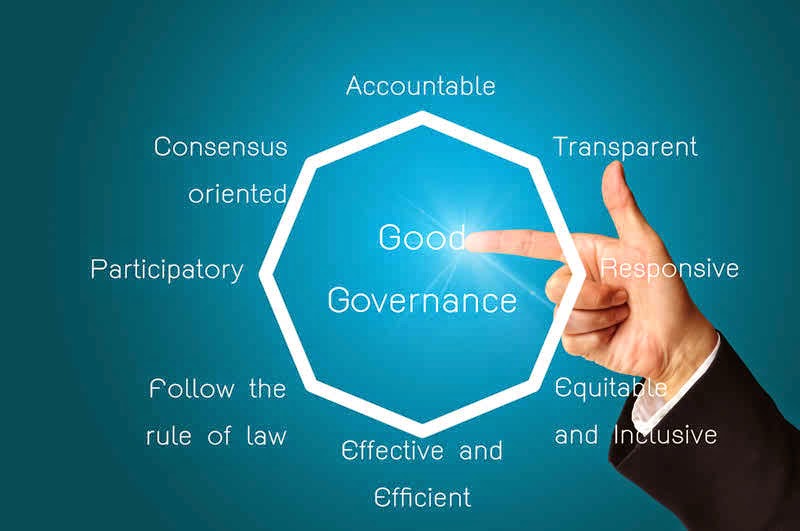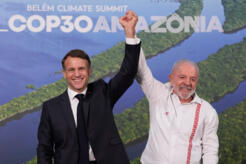UEFA and Amazon reignite partnership to power the women’s game forward – SportsMint Media

Report on the UEFA and Amazon Partnership Extension and its Contribution to Sustainable Development Goals
1.0 Executive Summary
The Union of European Football Associations (UEFA) and Amazon have announced an extension of their partnership until 2030. This report details the scope of the renewed agreement, focusing on its strategic initiatives for the development of women’s football. A significant emphasis is placed on analyzing the partnership’s alignment with the United Nations Sustainable Development Goals (SDGs), particularly SDG 5 (Gender Equality), SDG 10 (Reduced Inequalities), SDG 8 (Decent Work and Economic Growth), and SDG 17 (Partnerships for the Goals). The collaboration encompasses commercial sponsorship, retail expansion, and targeted grassroots development programs designed to foster sustainable growth in the sport.
2.0 Partnership Scope and Commercial Objectives
2.1 Official Sponsorship Agreement
The extended agreement designates Amazon as the official online retail sponsor for all major UEFA Women’s Football competitions for a five-year period, concluding in 2030. The scope of the sponsorship includes:
- UEFA Women’s Champions League
- UEFA Women’s EURO 2029
- UEFA Women’s Nations League
- UEFA Women’s Under-19 Championship
- UEFA Women’s Under-17 Championship
2.2 Retail and Fan Engagement Platforms
To enhance fan engagement and commercial viability, the partnership has established key retail platforms:
- Dedicated Women’s Football Store: Relaunched across the UK, Germany, France, Italy, Spain, and Switzerland, offering official merchandise and exclusive products.
- Official UEFA Women’s Champions League Online Store: The first-ever dedicated online store for the competition, managed by a women-led team to strengthen fan access and engagement.
3.0 Alignment with Sustainable Development Goals (SDGs)
The UEFA-Amazon partnership directly contributes to several key Sustainable Development Goals through its targeted initiatives.
3.1 SDG 5: Gender Equality
The core objective of the partnership is to advance gender equality by empowering women and girls in and through sport. Key contributions include:
- Increasing the visibility and professionalization of female athletes.
- Creating dedicated commercial platforms that elevate the economic status of the women’s game.
- Implementing programs specifically designed to increase female participation in roles where they are underrepresented, such as coaching.
3.2 SDG 10: Reduced Inequalities
The partnership actively works to reduce inequalities by removing barriers to entry and participation in football.
- The “Off Mute” initiative, supported by Amazon Web Services (AWS), is designed to amplify the voices of women and girls in football.
- The focus on grassroots development aims to provide equitable opportunities for participation, regardless of background.
3.3 SDG 8: Decent Work and Economic Growth
By fostering the commercial growth of women’s football, the partnership supports the creation of decent work and sustainable economic opportunities.
- The expansion of retail operations and sponsorship generates revenue that supports the professionalization of the sport.
- This growth creates viable career paths for female players, coaches, and administrative staff, contributing to economic development within the sports sector.
3.4 SDG 17: Partnerships for the Goals
This collaboration serves as a model for SDG 17, demonstrating a multi-stakeholder partnership between a major sports governing body (UEFA) and a global private sector entity (Amazon) to achieve shared development objectives.
4.0 Key Development and Inclusivity Programmes
4.1 Addressing the Gender Gap in Coaching
A critical component of the partnership is addressing the significant gender disparity in football coaching. Currently, only 4.5% of UEFA-licensed coaches are women. Through the UEFA Innovation Programme, the following actions are being taken:
- Amazon Web Services (AWS) is collaborating with the School of Engineering and Management Vaud in Switzerland.
- The objective is to develop and implement strategies to increase the number of qualified female coaches across Europe.
4.2 “Off Mute” Initiative
The “Off Mute” program is a central pillar of the partnership’s inclusivity efforts. Its primary goals are to:
- Amplify the voices and stories of women and girls involved in football.
- Remove systemic barriers to entry and participation.
- Encourage greater involvement at all levels, from grassroots to elite competition.
5.0 Conclusion and Future Outlook
The renewal of the UEFA and Amazon partnership until 2030 represents a long-term strategic commitment to the sustainable development of women’s football. The collaboration’s dual focus on commercial expansion and targeted social impact initiatives aligns directly with global sustainability frameworks, particularly the SDGs. Against a backdrop of record-breaking viewership and attendance for tournaments like the UEFA Women’s EURO 2025, this partnership is positioned to significantly advance gender equality, reduce inequalities, and foster economic growth within the sport, ensuring a robust and equitable future for women’s football in Europe.
Analysis of Sustainable Development Goals in the Article
1. Which SDGs are addressed or connected to the issues highlighted in the article?
The article on the UEFA and Amazon partnership to promote women’s football touches upon several Sustainable Development Goals (SDGs). The primary connections are with goals related to gender equality, partnerships, economic growth, and reducing inequalities.
- SDG 5: Gender Equality: This is the most central SDG addressed. The entire initiative is focused on accelerating the development of women’s football, empowering female athletes, and increasing female participation and leadership in the sport. The article highlights efforts to remove barriers for women and girls and to address the gender disparity in coaching roles.
- SDG 17: Partnerships for the Goals: The article is fundamentally about a multi-stakeholder partnership. It details the collaboration between UEFA, a sports governing body, and Amazon, a private sector entity, to achieve the shared objective of growing women’s football. This aligns with the goal of fostering effective public-private and civil society partnerships.
- SDG 8: Decent Work and Economic Growth: By promoting the “upward trajectory” and “sustained growth” of women’s football, the partnership contributes to the professionalization of the sport. This creates decent work opportunities for female players, coaches, and staff, and fosters economic growth within the sports industry, as evidenced by record-breaking attendance and viewership.
- SDG 10: Reduced Inequalities: The partnership aims to promote inclusion by removing “barriers to entry” and encouraging participation for women and girls “from grassroots to elite levels.” This directly addresses the goal of empowering and promoting the social and economic inclusion of all, irrespective of gender.
- SDG 4: Quality Education: The initiative to address the “disproportionately low number of female coaches” through the UEFA Innovation Programme and collaboration with a Swiss university implies a focus on education and vocational training. It aims to increase the number of women with relevant skills (coaching licenses) for employment in football.
2. What specific targets under those SDGs can be identified based on the article’s content?
Based on the initiatives described, several specific SDG targets can be identified:
- Target 5.5: “Ensure women’s full and effective participation and equal opportunities for leadership at all levels of decision-making in political, economic and public life.”
- Explanation: The article directly addresses this target through the initiative by AWS and the UEFA Innovation Programme to tackle the low number of female coaches. By aiming to increase the percentage of UEFA-licensed female coaches from the current 4.5%, the partnership is working to provide women with equal opportunities for leadership roles within European football.
- Target 17.17: “Encourage and promote effective public, public-private and civil society partnerships, building on the experience and resourcing strategies of partnerships.”
- Explanation: The core subject of the article is the extension of the partnership between UEFA (a civil society/governing body) and Amazon (a private company). The article describes it as a “shared commitment” and a “shared belief in the power of women’s football,” perfectly illustrating the collaborative model promoted by this target to achieve sustainable development objectives.
- Target 10.2: “By 2030, empower and promote the social, economic and political inclusion of all, irrespective of age, sex, disability, race, ethnicity, origin, religion or economic or other status.”
- Explanation: The “Off Mute” initiative, aimed at “amplifying the voices of women and girls in football, removing barriers to entry, and encouraging participation from grassroots to elite levels,” is a direct effort to promote the social and economic inclusion of women and girls in a traditionally male-dominated field.
- Target 8.5: “By 2030, achieve full and productive employment and decent work for all women and men… and equal pay for work of equal value.”
- Explanation: The article’s focus on the “sustained growth” and professionalization of women’s football, including the UEFA Women’s Champions League and EURO tournaments, contributes to creating more professional, paid employment opportunities for female athletes, thereby supporting this target.
3. Are there any indicators mentioned or implied in the article that can be used to measure progress towards the identified targets?
Yes, the article mentions and implies several indicators that can be used to track progress:
- Indicator for Target 5.5 (Proportion of women in managerial/leadership positions): The article provides a clear, quantitative baseline indicator: “just 4.5% of UEFA-licensed coaches are women.” Progress can be measured by tracking the increase in this percentage over the duration of the partnership until 2030.
- Indicator for Target 10.2 (Inclusion and participation): While not providing a number, the article implies an indicator through the goal of “encouraging participation from grassroots to elite levels.” Progress could be measured by tracking the number of registered female players and participants in programs supported by the partnership.
- Indicators for Economic Growth (related to Target 8.5): The article explicitly mentions several indicators of the sport’s growth:
- Shattered attendance and broadcast records for the UEFA Women’s EURO 2025.
- A notable spike in viewership and sponsor interest for the UEFA Women’s Champions League.
- The volume of sales from the dedicated Women’s Football Store and the official UEFA Women’s Champions League online store.
- Indicator for Target 17.17 (Partnership effectiveness): The renewal and extension of the partnership itself until 2030 serves as a qualitative indicator of its success and effectiveness. The scope of the agreement, covering a “wide spectrum of tournaments,” also indicates the depth of the collaboration.
4. Summary Table of SDGs, Targets, and Indicators
| SDGs | Targets | Indicators Identified in the Article |
|---|---|---|
| SDG 5: Gender Equality | Target 5.5: Ensure women’s full and effective participation and equal opportunities for leadership. | The percentage of UEFA-licensed coaches who are women (Baseline mentioned as 4.5%). |
| SDG 17: Partnerships for the Goals | Target 17.17: Encourage and promote effective public-private and civil society partnerships. | The existence and five-year extension (until 2030) of the partnership between UEFA and Amazon. |
| SDG 10: Reduced Inequalities | Target 10.2: Empower and promote the social and economic inclusion of all. | Implied indicator: Increased participation of women and girls in football from grassroots to elite levels through initiatives like “Off Mute”. |
| SDG 8: Decent Work and Economic Growth | Target 8.5: Achieve full and productive employment and decent work for all. | Record-breaking attendance and broadcast figures; notable spike in viewership and sponsor interest. |
| SDG 4: Quality Education | Target 4.4: Increase the number of adults with relevant skills for employment. | Implied indicator: The number of women participating in and completing coaching education through the UEFA Innovation Programme. |
Source: sportsmintmedia.com

What is Your Reaction?
 Like
0
Like
0
 Dislike
0
Dislike
0
 Love
0
Love
0
 Funny
0
Funny
0
 Angry
0
Angry
0
 Sad
0
Sad
0
 Wow
0
Wow
0












































































